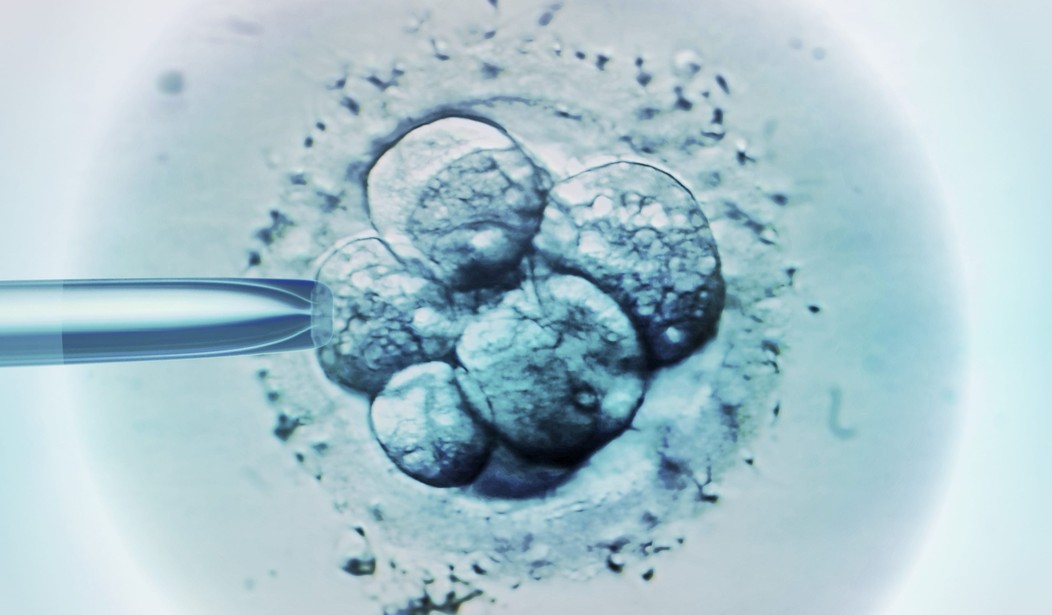Last month, British scientists announced a major breakthrough in creating artificial human sperm and egg cells. This development might enable same-sex couples to contribute DNA to create biological children with two fathers or two mothers.
Children are conceived by the fusion of two cells: a sperm cell from the father and an egg cell from the mother. If scientists can create an egg cell in a lab, then one of two homosexual men could contribute his DNA to form an egg. If scientists can create a sperm cell in a lab, then one of two lesbian women could contribute her DNA to form a sperm cell. In this way, homosexuals could become biological parents of a new child, to develop in the womb of a mother or surrogate mother.
Scientists had previously used stem cells to create viable mouse sperm that went on to produce healthy pups. Some have injected immature human germ cells into mice testicles to produce cells resembling sperm, but which failed to fertilize eggs.
“We can’t be absolutely sure that they are really sperm-like cells,” Azim Surani, director of germline and epigenetics research at Cambridge University’s Gurdon Institute, said in remarks at the Progress Educational Trust annual conference last month, The Guardian reported. “There are developmental timers in cells and so you have to let them develop according to their internal timing.”
Surani announced the key development — reaching the halfway point in creating human sperm and egg cells. “The challenge is that the timelines are very long in humans,” the scientist explained.
The natural process of creating sperm and eggs, known as meiosis, lasts only 13 days in mice, but extends to eight weeks in humans.
To achieve this process, the team developed miniature artificial testicles, dubbed gonadal organoids, by growing a blob of gonadal cells in the lab and suspending them in gel.
The DNA in germ cells such as sperm and eggs undergoes the “erasure” process, a stripping away of chemical marks laid down on parental DNA by exposure to the environment. These marks are wiped clean after an egg is fertilized, limiting the effect of a parent’s life experience on a child’s biology. An even more thorough resetting process takes place in the development of germ cells, however.
Surani’s study, which has not yet been published by a scientific journal, showed that the cells were undergoing this process in the lab. “This process of erasure is much more comprehensive and global; you don’t see it anywhere else. We’re starting to see that erasure process,” Surani said.
Each step in meiosis is important in the creation of eggs and sperm, so this development is significant. “If this was ever going to be used in a clinical setting we have to be sure that it has gone through all the right stages — all of these steps are incredibly important,” Surani explained. “You can make an egg that looks like an egg, but it might not be the right cell in molecular detail. You could get a lot of problems with that. You don’t want something that’s going to grow into some kind of abnormal structure.”
While scientists have been able to genetically engineer mice sperm, human sperm and eggs are much more difficult to create. Even so, scientists like Surani predicted that synthetic germ cells will be possible within ten years. This may seem like good news for homosexual couples, but the process has to be fully developed and carefully checked step by step in order to avoid passing genetic defects on through the resulting children.
“Much of the ambition to recreate reproductive processes in the lab is to further our understanding of these processes,” Helen O’Neill, director of the reproductive science and women’s health program at University College London, told The Guardian. “It is surprising how little we understand about the fundamental dynamics of the beginnings of life.”
The complexity of this process echoes Psalm 139:13-14, where King David sang to God, “For you formed my inward parts, you knitted me together in my mother’s womb. I praise you, for I am fearfully and wonderfully made. Wonderful are your works; my soul knows it very well.”
Scientists may discover how to artificially create eggs and sperm, but even their discovery speaks to the wonder of human creativity, something the Bible suggests comes from their being made in the “image of God.”
The creation of artificial eggs and sperm may solve many fertility problems, but as National Review‘s Wesley Smith pointed out, it is tragically ironic that as Americans and others are aborting millions of babies, scientists are working to create artificial humans. Is this a positive or negative thing?
The possibility that same-sex couples could become biological parents might have legal ramifications. Last year, a Mississippi judge ruled that, since two women could not have a biological child, a same-sex divorcee could not be listed on the birth certificate of the boy she helped raise.
Even if the science is worked out, deep questions will remain.









Join the conversation as a VIP Member